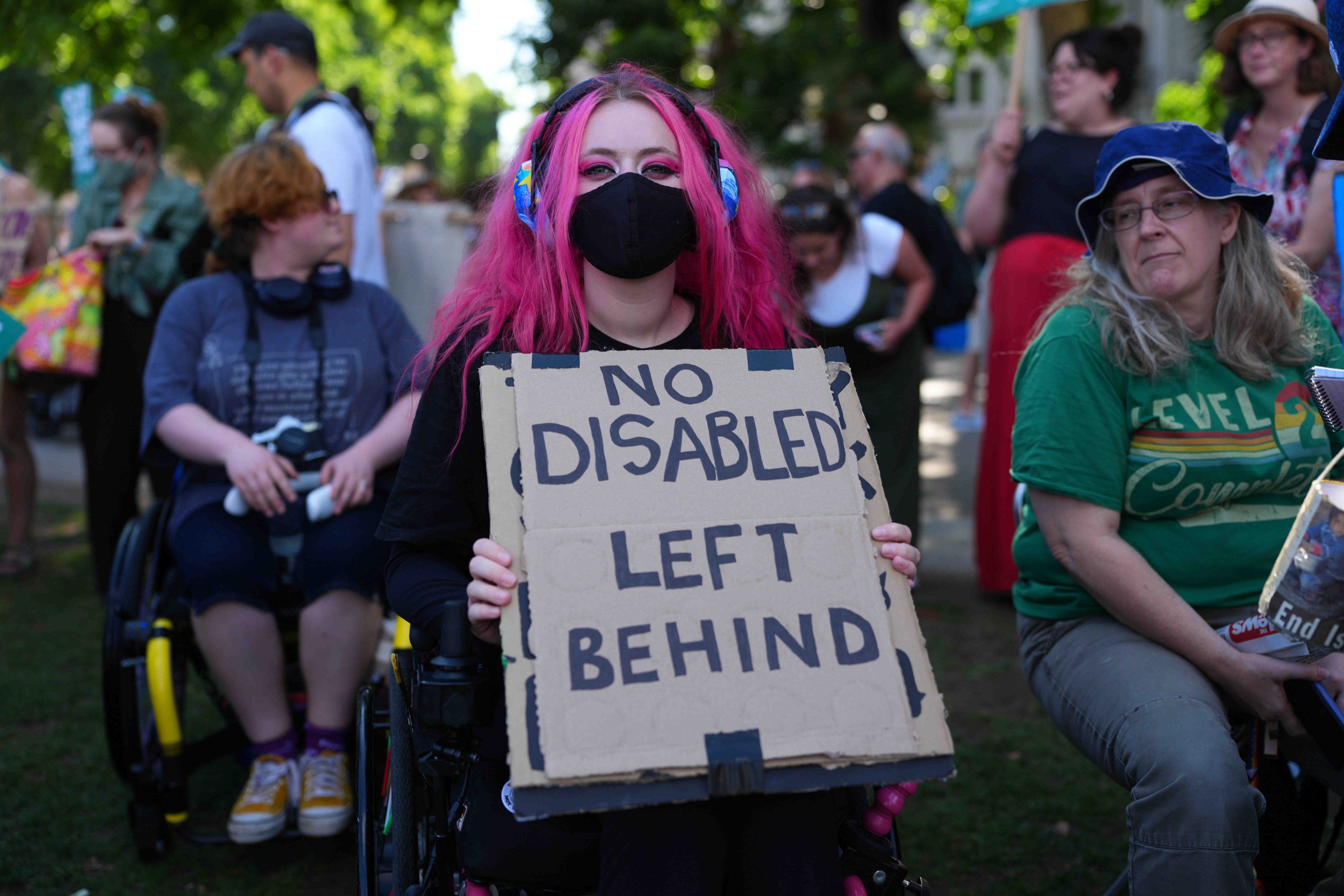It’s important in politics to see the small details as well as the big picture. And so it was that in the fateful few hours that passed between the prime minister’s announcement of his government’s ‘second phase’ and the outbreak of problems with Angela Rayner, someone in the know briefed the government’s favourite papers (the Telegraph and the Times).
It was a sinister briefing. The two papers authoritatively reported that the prime minister’s new top team intends to slash the benefits bill in the coming months, focusing on people with long-term health conditions.
Of course, they had already failed to push through cuts earlier in the year, following a large backbench rebellion. It was said that there is unfinished business here. Yet again, the target appears to be Personal Independence Payments (PIP), which remain a lifeline for millions of people living with long-term illness and disability.
The government has been badly bruised each time they’ve pursued cuts to welfare since coming to office. First, there was the damaging decision to cut the winter fuel payment for most pensioners, which became so toxic that the government has all but abandoned the policy for the coming winter.
Then there were the cuts to benefits for the sick and disabled, embarrassingly dropped at the eleventh hour in the face of backbench resistance. In both instances, the Labour Party suffered a significant political backlash from the public. It’s easy to understand why.
The targets of the cuts — the elderly, the sick and the disabled — are vulnerable groups, which most people in our society think deserve extra support. The proposed cuts clearly clashed with the British people’s strong sense of fairness.
Yet everyone can see those at the very top making colossal sums of wealth, while the working class struggles. Why should the government’s books be balanced off the backs of vulnerable groups, when the rich are literally rolling in money?
Far from learning from the mistakes of recent months, it would appear that the Prime Minister is intent on doubling down on the same failed strategy. What is his justification?
Sir Keir argues that he wants to get the long-term sick ‘back to work’. But unemployment is on the rise. There are 1.67 million unemployed people in Britain today, and only 718,000 job vacancies. So even if every vacancy was filled, almost a million people would still be out of work. Where will they find the jobs? Disabled people face deep discrimination. If forced off benefits and into work, they face personal disaster.
Most ominously, these original briefings have been followed up by a clampdown. The i Paper is now reporting that disability experts from the third sector have been told that they must sign a ‘gagging order’ before joining a panel advising the government on welfare reforms. We need a public debate with all voices being heard. But the most knowledgeable people look as if they will be told to pipe down. How can the public have trust in a review that is taking place in secret? Gagging orders on disability experts smacks of nineteenth-century paternalism.
Maybe having appointed a new whips’ office, the prime minister calculates that he can secure a majority in parliament. But he will not win the country over. Cuts to sickness or disability benefits will be met with the same fierce resistance in parliament as the last futile attempt. It speaks volumes about the prime minister’s unwillingness to listen to voices beyond his immediate circle of advisors that he is even contemplating such a move. He should surely know there is little support for welfare cuts in the Parliamentary Labour Party.
Labour was founded to represent the working class interest. Our historic mission is to transform society, not to maintain the status quo. Our welfare state wasn’t a gift from the rich and the powerful. It was won through the struggles of the working class, organised in trade unions, community organisations and political movements. It was legislated by a Labour government that was propelled to office by these same social forces. It is unfathomable to many that a Labour Prime Minister is now leading the assault on our welfare state, and claiming that this is a ‘moral imperative’. There’s nothing moral about making poor people even poorer.
Of course, the government is under financial pressure. The bond markets are rattled. Government borrowing costs are rising. The pound is taking a hit. But rather than looking to tax the astronomical wealth of the super-rich, or clamp down on corporate profiteering, they’re reaching for the old Tory weapon: welfare cuts.
When the Tories attacked the sick and disabled, I opposed it. When this Labour government did the same, I opposed it. I will never vote for calculated, cruel policies that harm vulnerable people, regardless of which party is in government.
I know many Labour MPs, trade unions, and disability rights organisations will also oppose any further attempt to cut benefits. And I know that the public will not accept more cruel and unfair punishment of vulnerable people. The government must change course to avoid another extremely damaging saga.
We need an economy that works for the many, not the few. That phrase is more than just a slogan — it’s an assertion of basic socialist moral principles. When you look at the polls, it would seem that in the public’s eyes, this government is serving the few and not the many. This cannot be allowed to continue.
No more excuses. No more spin. No more cruelty dressed up as reform. A real ‘moral imperative’ would be to tackle the root causes of poverty — low pay, high prices, and underfunded public services. Not to punish vulnerable people for the misfortune of being sick or disabled.
